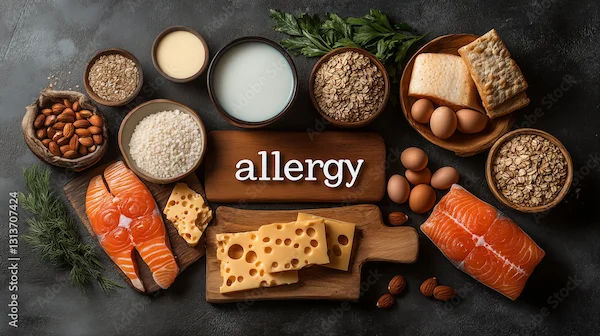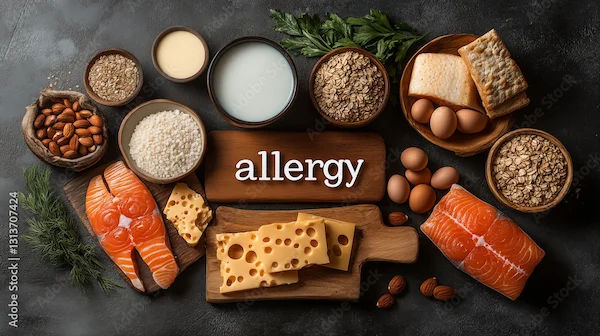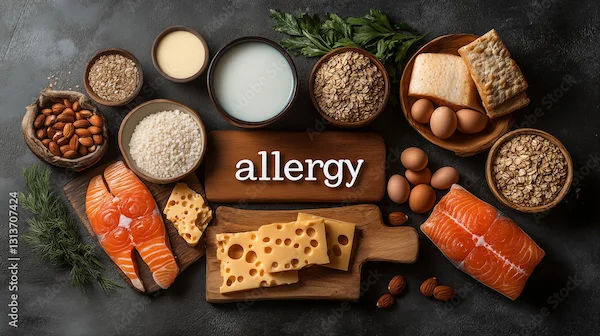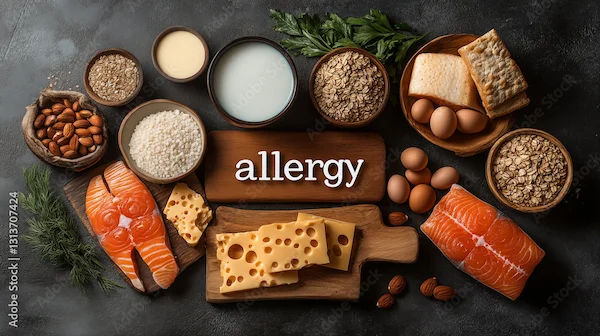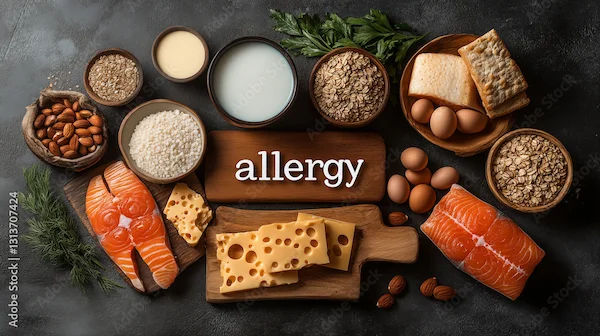Food Allergy and Food Intolerance Differences
Understand the key differences between food allergies and food intolerances, including their causes, symptoms, and how to manage each condition for better digestive and overall health.

Written by Dr. Shaik Abdul Kalam
Reviewed by Dr. Dhankecha Mayank Dineshbhai MBBS
Last updated on 13th Aug, 2025

Introduction
Do certain foods make you feel unwell? You might be experiencing a food allergy or food intolerance, but these two conditions are very different. Understanding the differences can help you manage your symptoms better and seek the right treatment.
What Is a Food Allergy?
A food allergy is when your immune system mistakenly treats a harmless food as a threat and reacts aggressively. This reaction can be severe and even life-threatening in some cases.
Common Symptoms of Food Allergy:
Skin reactions: Hives, itching, or swelling (especially around the mouth).
Respiratory issues: Wheezing, nasal congestion, or difficulty breathing.
Digestive problems: Nausea, vomiting, or diarrhea.
Severe reaction (Anaphylaxis): A sudden drop in blood pressure, dizziness, or loss of consciousness (requires emergency treatment).
Common Food Allergens:
Milk
Eggs
Peanuts
Tree nuts (almonds, walnuts)
Fish & shellfish
Soy
Wheat
Health topic carousel:
Doctor's speciality: Immunology
Text: Consult a Top Immunologist
What Happens in a Food Allergy?
Your immune system releases antibodies (IgE) to fight the "invader," causing a rapid reaction (within minutes to hours). Even tiny amounts of the food can trigger a response.
What Is Food Intolerance?
Food intolerance is a digestive issue where your body struggles to break down certain foods. Unlike allergies, it does not involve the immune system and is usually less severe.
Common Symptoms of Food Intolerance:
Digestive discomfort: Bloating, gas, diarrhea, or stomach cramps.
Headaches or migraines
Fatigue or irritability
Skin issues (rare): Mild rashes or eczema.
Common Causes of Food Intolerance:
Lactose intolerance (dairy) – Missing the enzyme to digest milk sugar.
Gluten sensitivity (non-celiac) – Trouble digesting gluten (wheat, barley).
Food additives (MSG, sulfites, artificial sweeteners).
Histamine intolerance (fermented foods, aged cheese).
Key Differences Between Allergy and Intolerance
Below are the key differences between allergy and intolerance,
| Factor | Food Allergy | Food Intolerance |
|-------------------|----------------|-------------------|
| Immune System | Yes (IgE reaction) | No |
| Onset | Rapid (minutes to hours) | Delayed (hours to days) |
| Severity | Can be life-threatening | Usually mild to moderate |
| Amount Trigger | Tiny amounts can cause reaction | Larger amounts often needed |
| Common Tests | Skin prick test, blood IgE test | Elimination diet, hydrogen breath test |
How to Manage Food Allergies & Intolerances
Below are the ways to manage food allergies and intolerances,
For Food Allergies:
Avoid trigger foods completely.
Read food labels carefully.
Carry an epinephrine auto-injector (if prescribed).
Inform friends, family, and restaurants about your allergy.
For Food Intolerance:
Identify triggers (keep a food diary).
Try an elimination diet (remove suspected foods for 2-4 weeks, then reintroduce).
Use enzyme supplements (e.g., lactase for lactose intolerance).
Opt for alternatives (lactose-free milk, gluten-free grains).
When to See a Doctor?
In case of food allergy and intolerance, below are the cases when a doctor should be consulted,
If you experience severe allergic reactions (anaphylaxis).
If symptoms persist or worsen despite dietary changes.
If you need proper testing to confirm allergies or intolerances.
Get Tested with Apollo 24|7
If you suspect a food allergy or intolerance, consult a specialist for accurate diagnosis. Apollo 24|7 offers:
Allergy testing (skin prick, blood tests).
Nutritionist consultations.
Personalized diet plans.
Book a consultation today and take control of your health!
Health topic carousel:
Lab Test: Allergy Test
Text: Get Your Health Assessed
Final Thoughts
While food allergies can be dangerous, food intolerances are usually manageable with dietary adjustments. Knowing the difference helps you take the right steps toward better health. Listen to your body, and don’t hesitate to seek medical advice if needed.
Health topic carousel:
Doctor's speciality: Immunology
Text: Consult a Top Immunologist
